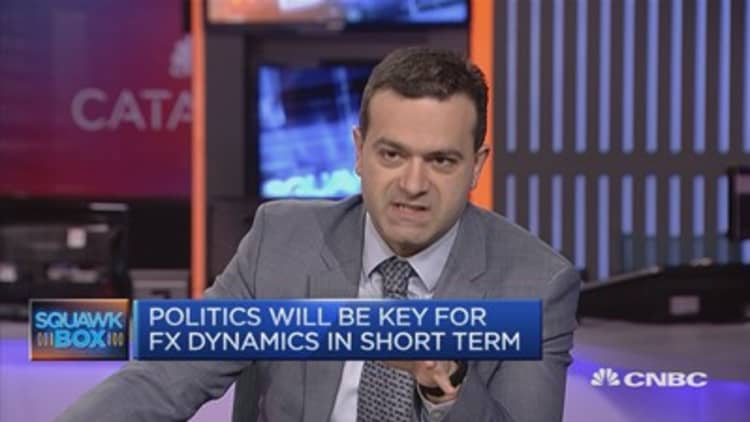At first glance, the two politicians seem worlds apart: firebrand businessman turned political upstart U.S. President Donald Trump, and left wing Greek Prime Minister Alexis Tsipras, elected in 2015 to turn his country's troubled, debt-ridden economy around.
But for one strategist CNBC spoke to, the trajectories of both politicians are more similar than one might think.
This "goes back to this issue of populism," Vasileios Gkionakis, head of global FX strategy at UniCreditBank, told CNBC's Squawk Box Monday.
"For populism to be able to gain acceptance, spread and potentially govern, you actually need a lot of hearsay," he reasoned. Certain politicians rely on pulling "claims out of thin air, without really having the numbers to back them up," a process which he related to Tsipras' election amid the Greek debt crisis.

Gkionakis was reflecting on Trump's failure Friday to win the support of Republicans to reform health care in the United States.
Drama is needed to mobilize voters' support, Gkionakis said. But when elected, leaders often find that "the majority of the things they were proposing cannot actually be implemented because of a large number of hurdles" such as "internal political dynamics."
Gkionakis spoke of the danger of politicians cultivating a mindset in their electorate, and that "without these beliefs actually corresponding to reality, to facts ... people become attached to them and it can be extremely difficult to change people's minds."

